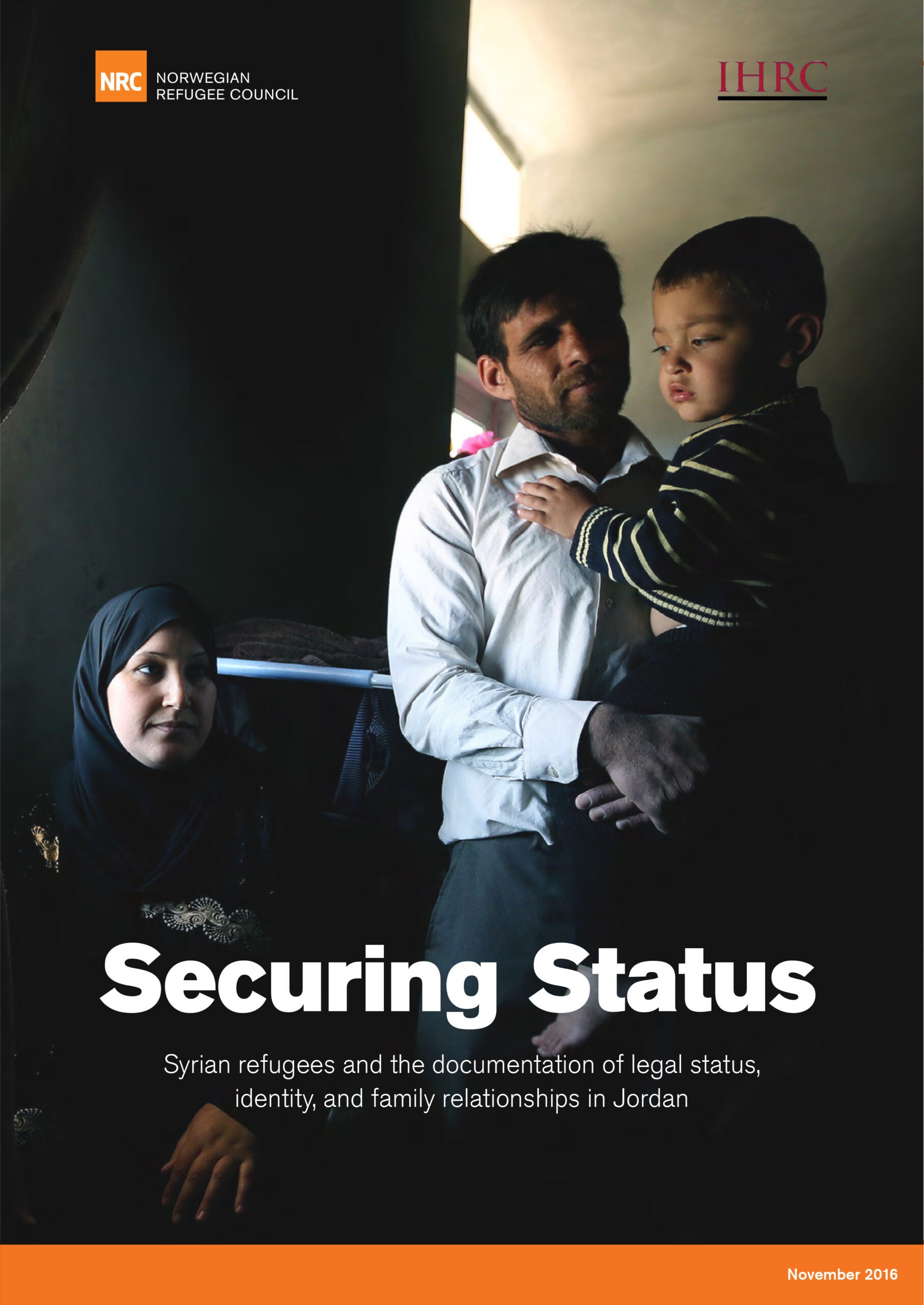In November, the International Human Rights Clinic at Harvard Law School and the Norwegian Refugee Council Jordan launched Securing Status: Syrian refugees and the documentation of legal status, identity, and family relationships in Jordan, a 45-page report that details the challenges Syrian refugees living outside refugee camps encounter obtaining official documents from the Government of Jordan that allow them to access services, such as healthcare, as well as humanitarian assistance.
Nearly 80 percent of the 655,000 Syrian refugees registered with United Nations’ refugee agency in Jordan live outside refugee camps, in Jordanian cities, towns, and rural areas. The report outlines official processes for refugees to obtain documentation, the challenges refugees encounter, and the consequences faced by those who lack documentation.
The report focuses on issues surrounding “legal documentation,” a term referring in this context primarily to new Ministry of the Interior Service Cards (“new MoI cards”), but also encompassing asylum seeker certificates (documentation issued by the United Nations High Commissioner for Refugees [UNHCR]), Syrian passports, and Syrian identity cards. The new MoI card is a particularly important piece of legal documentation because possession of a card confirms that its holder is officially entitled to live outside refugee camps.
According to the report, the largest groups of concern are refugees who are ineligible to receive new MoI cards and refugees who are eligible, but have not yet obtained new MoI cards because they lack the documents necessary to receive a card through the normal issuance process.
Although this report is focused on legal documentation, it also updates Registering Rights: Syrian refugees and the documentation of births, marriages, and deaths in Jordan. Jointly published by the IHRC and the NRC in October 2015, Registering Rights highlighted the challenges that Syrian refugees face around “civil documentation” – meaning, in this context, registering births, marriages, and deaths – and the consequences that flow from non-registration of such life events.
